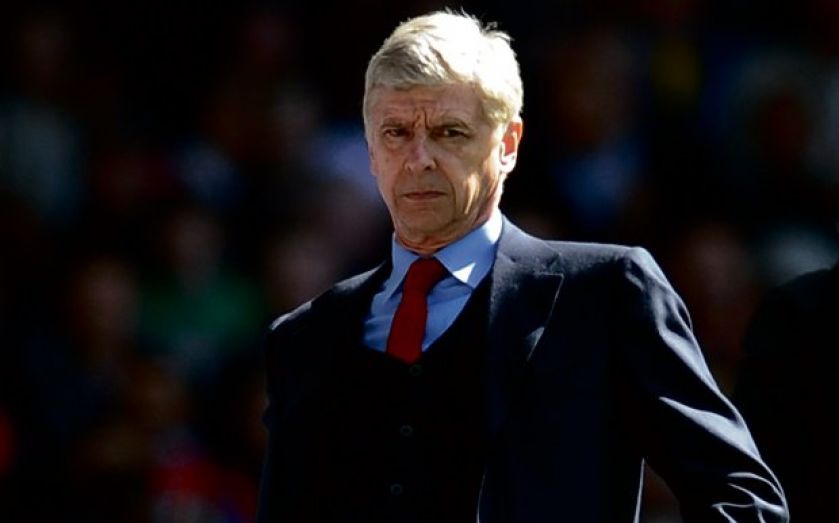Lost the plot: City A.M’s pick of the best books of 2020

Whether it was a period of furlough, a cancelled trip or endless weekends with no pubs, restaurants, museums or cinemas open: there has definitely been more time for most of us to get stuck into a good book this year.
As we turn the last page of 2020, whether you’re looking for a page-turner during your “small, short and local” Christmas holiday, hunting for last minute presents or compiling a list to get you through whatever 2021 throws our way: here’s a round-up of the best books the City A.M. team has read this year.
Best non-fiction books of 2020
My Life In Red and White by Arsene Wenger
Chosen by Frank Dalleres – Sports editor

Arsene Wenger was not your typical football manager, his scholarly demeanour, visionary ideas and cosmopolitan outlook out of step with the English game’s parochial tendencies.
And his memoir, based largely on his 22 years at Arsenal, is not your typical sports autobiography. Wenger forgoes the usual dirt, score-settling or salacious detail, focusing instead on the childhood that shaped his idealistic, at times puritanical, character, his halcyon days in London and, more than anything, the sadness he felt at the club that he transformed eventually forcing him out.
It’s a football book, then, but at its heart a lament to lost love.
Black Wave by Kim Ghattas
Chosen by Ed Thicknesse – Transport and industry reporter
Opening in 1979 with the Iranian revolution and the Soviet invasion of Afghanistan, Black Wave, by former BBC journalist Kim Ghattas, traces the development of the rivalry between Iran and Saudi Arabia up to the present day.
Focusing in on the lives of the guerrillas, scholars, and clerics who have shaped the last 40 years, Ghattas’ book fuses discussion of the ideological disputes that have pulled the Gulf apart, as well as their impact on the wider region.
Essential reading for anyone trying to make sense of one of the world’s defining conflicts.
Putin’s People by Catherine Belton
Chosen by Andy Silvester – Acting editor

Many books have traced the rise of Putin and the resurgence of Russian nationalism, but Belton’s is so far at least the most comprehensive.
An ideal partner to Heidi Blake’s 2019 From Russia With Blood, Belton traces not just the tactics but the ideology of Putin’s rise to power – and what he’s done with it.
It’s sobering reading for those who believe in liberal democracy, and disheartening for anybody who cares about the Russian people.
A warning, a vital warning, and a reminder that if and when Putin leaves the stage, the nationalist, muscle-bound ideology he has fostered will remain for decades to come.
Angola: Promises and Lies by Karl Maier
Chosen by Michiel Willems – Digital editor
Karl Maier was the Africa correspondent for the Washington Post and Independent for ten years and wrote this book in the early ’90s.
He provides a fascinating analysis of the realities behind Angola’s civil war, among the longest in the world. It’s a vivid eye-witness account of the devastation and destruction the conflict brought to its people.
From speaking to Cuban soldiers (yes, Cuban) at the largest battle in Africa, to nurses, to black-market traders, aid workers, a lost Dutch pastor to Margaret Anstee from Chelmsford, the UN rep in the country at the time, he views Angola’s ‘bloody decade x2’ with a rare sympathy for the ordinary people caught in the crossfire.
While reading it, you can only be sceptical of both sides’ broken promises and hollow lies. I loved every minute of it.
Antigone Rising: The Subversive power of Ancient Myths by Helen Morales
Chosen by Rachel Cunliffe – Comment & Features Editor
What does Penelope weaving at her loom as she waits for Odysseus to return from Troy have to do with pussy hats at anti-Trump marches and the #MeToo movement?
Is it possible to learn anything meaningful about perceptions of trans identity from the gender-bending tales in Ovid’s Metamorphoses? And in an era of cancel culture, is there really a progressive way to read the ancient texts that have underpinned centuries of western literature?
If you’re interested in any of the above, or if you just fancy brushing up on your classics, get your hands on a copy of Antigone Rising.
Distinguished classicist Helen Morales takes no prisoners, fiercely interrogating the treatment of mythological women and reclaiming their narratives for the 21st century. Deftly combining modern political theory with a close-reading of some of the best known classics texts, this book will make you rethink everything you thought you knew about myth.
In a year that has thrown into question who writes history and how we respond to it, it is the ideal 2020 Christmas read.
They may have been written thousands of years ago, but these stories still have something to teach us. What we make of them is up to us.
The Deficit Myth by Stephanie Kelton
Chosen by Harry Robertson – Economics reporter

The Deficit Myth is the new manifesto for “Modern Monetary Theory” – that is, the belief that governments can spend as much as they want so long as they have full control over their own currency.
Right now, Kelton’s ideas seem highly relevant. She argues – in a clear and engaging way – that we don’t need to worry about government spending, only inflation. Instead, we should focus on various other “deficits” such as poor pay and environmental damage.
There are some strong arguments against this thinking. Kelton says inflation should be controlled by the tax system – but tax rises are much easier said than done. Nevertheless, it is an illuminating book that will drive debate for years to come.
Our favourite fiction books of 2020
The Family Upstairs by Lisa Jewell
Chosen by Hannah Godfrey – Professional services reporter
Of all the books I read this year The Family Upstairs by Lisa Jewell was certainly the most memorable.
Set mostly in London, the story centres on a once wealthy Chelsea family who lost everything after becoming part of a cult that saw their family torn apart, and ultimately face a grisly end.
The book is a real ‘whodunit’, and for a long time the reader is left wondering who are the goodies and who are the baddies.
With enough family drama to satisfy even the most committed Kardashian follower, combined with murder, money and a vegan cult, The Family Upstairs is totally unputdownable.
Such A Fun Age by Kiley Reid
Chosen by Angharad Carrick – Private equity and investment reporter
Such A Fun Age by Kiley Reid is a devastating, albeit familiar, narrative about race and privilege in modern day America.
White blogger Alix asks her African American baby-sitter Emira to look after her toddler Briar.
Emira is subsequently accosted by a security guard in the local supermarket and accused of kidnap. The aftermath is an interesting look at performative activism and the “white saviour” complex. I devoured it in a day – it’s intelligently written, nimbly switching between both points of view.